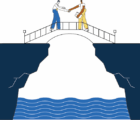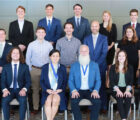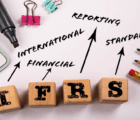
If you have been working as an actuary for more than a handful of years, chances are you’ve developed some actuarial judgment along the way, whether you meant to or not. Actuarial judgment shows up in many ways. Maybe you’ve gotten good at anticipating the outcomes of a calculation before it’s done. Maybe you’ve developed a way of communicating technical concepts in simple ways that resonate with even a nontechnical audience. Maybe you’re comfortable admitting when you’re wrong and learning from your mistakes. These are all demonstrations of actuarial judgment.
Applications of actuarial judgment can be both technical and general. We use it when setting assumptions and testing model outcomes for reasonableness. We also use judgment in establishing prioritization. Discerning the appropriate time to call something “done” and move on is an essential professional skill that must be developed over time.
Expert judgment arises from developing skill, expertise, or specialized knowledge in a particular discipline. Because an actuary’s work often involves predicting inherently unknown future outcomes, actuarial judgment is a bit broader and thus requires more rigor and discipline. Practitioners in any career field must develop expert judgment, but most do not have the same duty to the public that actuaries have. As a self-governing profession, the ABCD holds us accountable to use actuarial judgment in a responsible way. The Code of Professional Conduct is a great resource offering guidance on actuarial judgment. The Actuarial Standards of Practice (ASOPs) work in harmony with actuarial judgment. Annotation 3-2 of the Code of Professional conduct states, “Where a question arises with regard to the applicability of a standard of practice, or where no applicable standard exists, an Actuary shall utilize professional judgment, taking into account generally accepted actuarial principles and practices.” However, this does not give an actuary free rein to do anything they want under the sweeping umbrella of “professional judgment.” It is important to document and disclose any deviations from the ASOPs.
Actuarial exams are the beginning of the journey to develop expertise that allows us to exercise professional judgment. Actuarial exams are just the start as we have a lifetime of continuing education requirements. We must realize what we know and what we don’t know on any given project and disclose any relevant limitations. In general, actuaries should develop a basic understanding of whatever business they are analyzing. ASOP 53, Estimating Future Costs for Prospective Property/Casualty Risk Transfer and Risk Retention, provides a good checklist of issues to review to ensure you’ve taken everything into consideration before providing actuarial services, such as data quality, new coverages or exposures, and the treatment of catastrophes. In a 2025 CAS Spring Meeting session on the topic of “Developing Actuarial Judgment,” Ronald Kozlowski, FCAS, MAAA, and Andrew Dalgaard, FCAS, offered four additional considerations that they would add to this list: accounting changes, climate change, bias, and contagion. Kozlowski emphasized the importance of knowing your data, proposing that “the data you use is more important than what you do with it.”
Actuaries spend their entire careers continuously developing and refining their actuarial judgment. These critical thinking skills are a collection of experiences one accumulates over time and are largely unique to the individual. My toolbox that I call “actuarial judgment” will not look exactly like that of anyone else. However, there are a few tools that we should use regularly. Reviewing diagnostics and sensitivity testing of assumptions are crucial to developing actuarial judgment. Evaluating actual versus expected data emergence is a good exercise for keeping our judgment sharp. Performing a “smell test” on the results of an analysis to understand uncertainty, especially when using more sophisticated techniques, is another good practice.
Kozlowski and Dalgaard are advocates for mentorship in the advancement of actuarial judgment across our profession. Experienced actuaries can learn much by teaching their newer colleagues multiple ways to think about a problem. Hearing the thought processes of multiple qualified actuaries will help new and aspiring actuaries develop their own actuarial judgment much more quickly. And the teaching should go both ways! As technology evolves, it becomes imperative for experienced actuaries to rely on younger actuaries entering the field to teach them about what is emerging and how to implement new tools and techniques into their existing processes.
At the heart of all actuarial judgment is communication and ethics. Actuaries must be able to communicate their results and recommendations clearly in order to add value to society. And the decisions we make and the solutions we offer must be of the highest ethical integrity. The communities we serve are counting on it.
Look in the next issue of Actuarial Review for a more in-depth view on this topic.
Erin Olson, FCAS, is actuary lead at USAA. She is a member of the AR Working Group.













